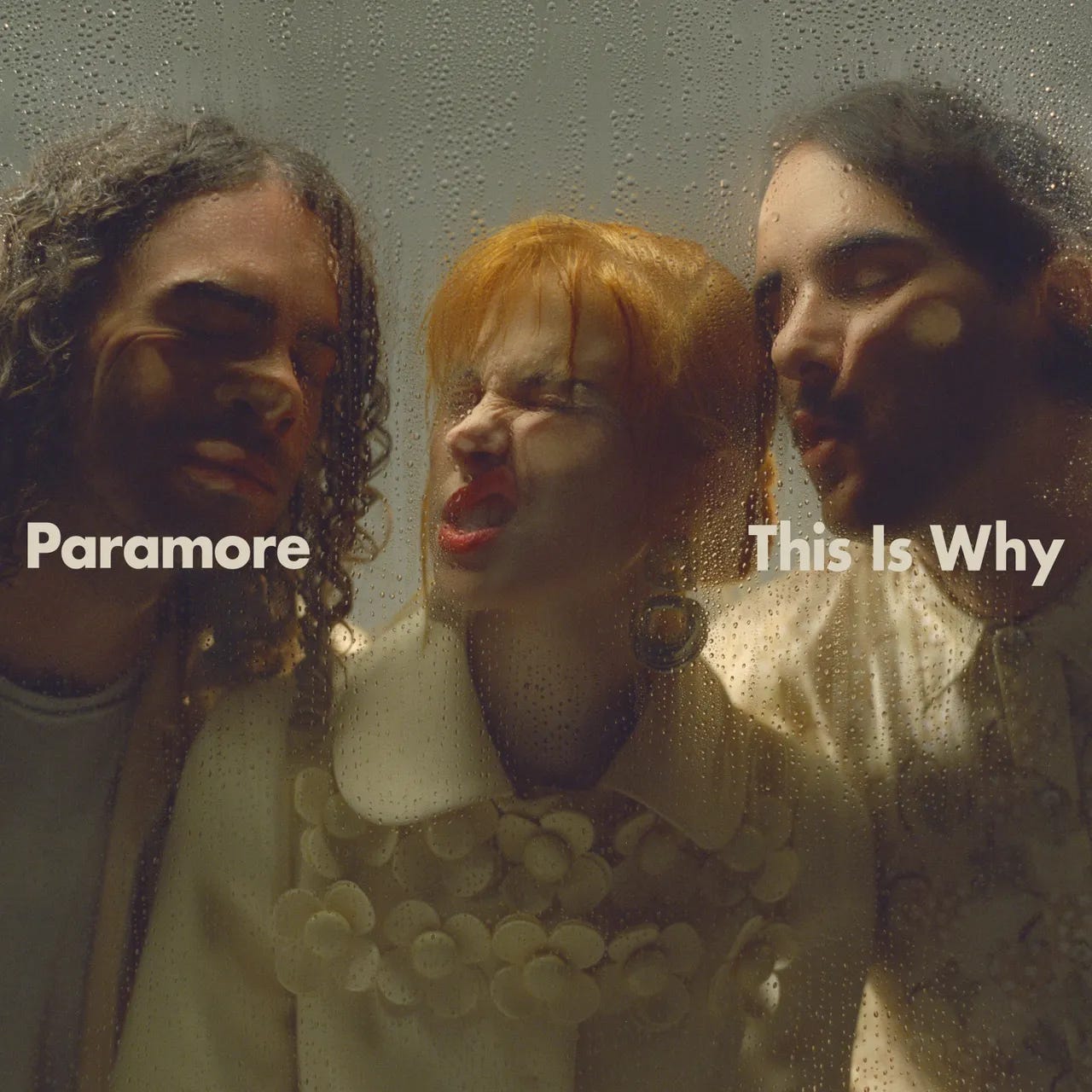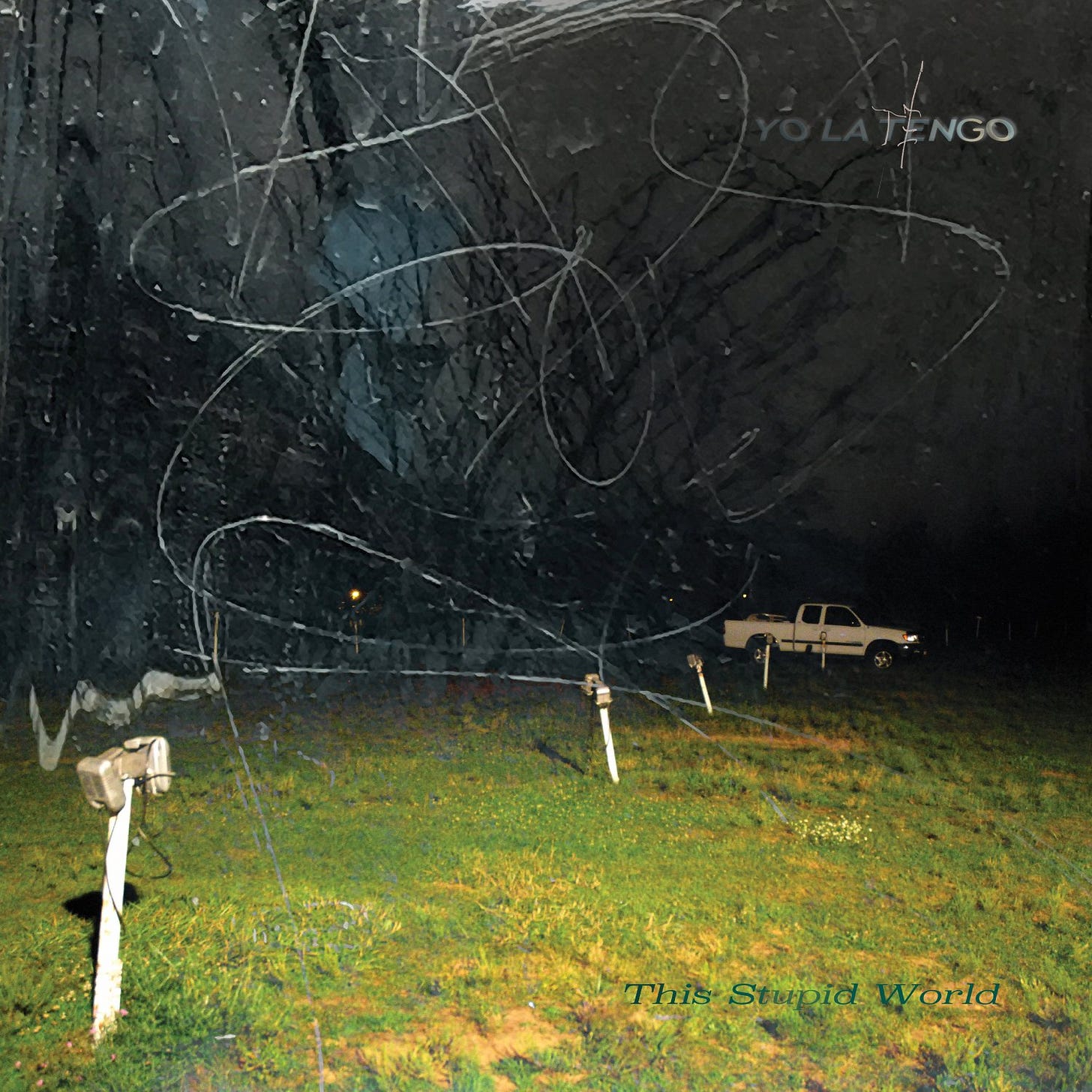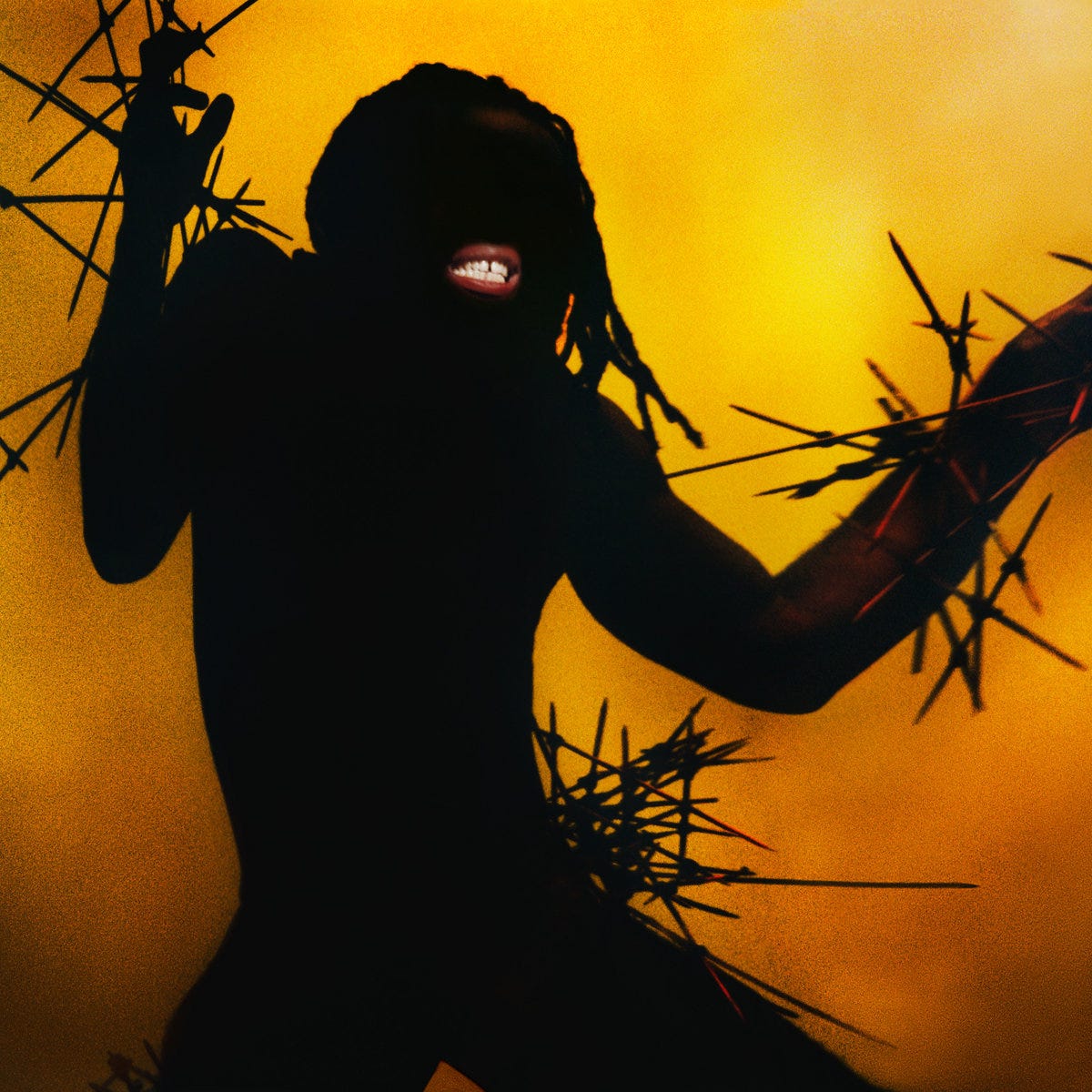Adventures in Listening, February 24, 2023: Growing Up, Falling Out
Three exciting new albums from three very different bands: Paramore, Yo La Tengo, and Young Fathers. Plus: A three-hour kalimba odyssey from Laraaji.
Paramore - This is Why
For Paramore, emo and pop-punk have always been ground zero. No matter how much they experiment and explore, they’re always guided by their core values of heart-on-sleeve immediacy and combustible garage-band energy. This is a feature, not a bug, and it’s never served them better than it does on This is Why, their return to action following a five-year hiatus. The remarkable achievement of this album is how it functions as both a consolidation of their strengths and a subtle expansion of their craft, making it feel like no time has passed since Paramore ceded the spotlight but also confirming that they’ve grown as musicians and as people. You can hear it in the album’s very sound: They raid Achtung Baby for industrial effects and electronic flourishes, and with the title track’s jittery, paranoid funk they summon the spirit of peak Talking Heads. Yet they also remain intensely physical, peeling off ragged riffs and lithe grooves, their rambunctious chemistry sounding textured but never fussed over, detailed but still visceral. (“C'est Comme Ça,” a trashy little dance-punk number, is the kind of thing I wish No Doubt was still around to make.) This is a what a band sounds like when they mature without losing their youthful hunger, leaning into their strengths without sounding like they’re repeating themselves.
Hayley Williams strikes a similar balancing act in her lyrics, which convey a growing social and political awareness with the same directness and candor she once reserved for teenage distress. She sings about the paralysis that comes from feeling stuck in the 24-hour news cycle (“The News”), dresses down a powerful man who squanders every opportunity at repentance (“Big Man, Little Dignity”), and fears the judgmental eye that scrutinizes her whenever she leaves her home (“This is Why”). “Running Out of Time” sounds at first like a slacker’s anthem, but actually it’s a song about living with the guilt of good intentions; Williams genuinely wants to pursue mercy and justice, she just doesn’t have enough hours in the day. There are a lot of rich and clever turns of phrase (“it’s my dependence on the friction that really hinders my progression;” “I’m livin’ in a horror film where I’m both the killer and the final girl”), and blunt assessments of life in the hectic age of viral tweets and instant headlines (“every second our collective heart breaks/ all together every single head shakes”).
What makes these songs effective is the paper-thin line that separates them from her more “personal” songs, if indeed there is any line of separation at all. She hasn’t suddenly turned into Bono, writing anthems of activism, nor Thom Yorke, prophesying doom and gloom. Instead, she’s writing relatably, brutally, evocatively about what it feels like to be a young adult in 2023. It helps that she is very funny: “You First” is a pummeling anthem of karmic justice, more clever and more complicated than Taylor Swift’s recent takes on the same theme. (“I never said I wasn’t petty,” Williams deadpans, not quite shamelessly.) And, her writing is as much about self-analysis as it is sociopolitical critique; “Thick Skull,” the moody album closer, laments a hard head and a divided heart. Songs like these are deft in summoning the spirit of millennial malaise, while still somehow sounding cathartic, joyful, and fun. It all adds up to an irresistible rock album, proof that Paramore can grow up while hanging on to their teenage emotionalism.
Yo La Tengo - This Stupid World
I tend to like Yo Le Tengo when they’re at their most expansive. Their best albums are the ones with the widest reach: I love how I Can Hear the Heart Beating as One makes room for both bosa nova and electronica, how Fakebook moves ably from jangle-pop to old-school soul. This Stupid World immediately ranks among the Yo La Tengo albums I love the most, but I love it for a different reason than all the others: Where the mighty Hoboken trio typically thrives in sprawl, This Stupid World finds them flourishing through laser focus. They’ve made a lot of albums where it feels like they can do anything and everything, but here they feel more interested in doing a couple of things very, very well. It’s the kind of disciplined album that only true masters can make, the fruit of a long obedience in the same direction.
And just what is that direction? Rumbling, propulsive, and winding rockers, driven by tight grooves but drenched in guitar noise and dissonance. This Stupid World may emphasize one specific version of Yo La Tengo— the version that makes a big racket— but it reveals that this one version contains multitudes. On opener “Sinatra Drive Breakdown,” the trio moves as a single organism, Ira Kaplan’s guitar squall ebbing and flowing in response to the rhythm section’s motorik groove. “Fallout” is a tumble of ragged riffs and pop harmonies. “Brain Capers” pummels, pounds, and teeters on just the right side of chaos. Those who prefer the band’s quieter side will have to settle for “Aselestine,” a spare and haunted country song sung by Georgia Kaplan— though “settle” is hardly the right word for a song so beautiful, it immediately joins the band’s classics. Georgia also takes charge on “Miles Away,” a palette-cleansing wave of ambient noise and gently pulsing percussion.
The album’s title betrays a certain frustration and fatigue, which may be stating it mildly. (It’s too bad Marc Marcon used From Bleak to Dark as the title for his new standup special; it could just as easily apply to this collection, which seems to share the same disposition.) These songs assume calamity; it’s not a question of if, but when. But if the album is grim, it’s not disengaged; this isn’t a soundtrack for quitters, but for people who see the world’s faults and choose to love it anyway, or at the very least hang on as best they can. How else to explain the oddball “Tonight’s Episode,” where bassist James McNew uses yo-yo tricks to take his mind off the apocalypse? (Whatever works, man!) Or for that matter, the empathy at the heart of “Apology Letter,” Ira’s beautiful and humble slice of self-deprecation? On the title track, the band offers this: “This stupid world is killing me/ This stupid world is all we have.” It’s a rough sentiment— but then they keep on rocking anyway.
Young Fathers - Heavy Heavy
Young Fathers are headquartered in Edinburgh, but, on Heavy Heavy, they’ve left their hearts in Africa. Inspired in part by trips to Ghana and Ethiopia, the band has widened its sound— an unruly conglomeration of rap, soul, electronic music, and gospel, occasionally calling to mind TV on the Radio but more often sounding utterly distinct— with polyrhythms and call-and-response vocals, creating a sensation of joyous, communal music-making. Which is not to say that this is a kumbaya sing-along. The lyrics, more about mood than linear storytelling, reckon with real darkness, referencing adversity, violence, and political turmoil; they express yearning for the mother country, a place of belonging. But the music itself offers a counternarrative, cutting the darkness with a rapturous sound that aims for total immersion, not least on the euphoric “Ululation,” which sounds like Sigur Ros by way of Graceland. The darkness they’re singing about is nothing new— but neither, these songs suggest, is the human instinct to sing and dance in the face of it.
Laraaji - Segue to Infinity
Let me address a couple of questions right out of the gate: No, I never thought I’d find myself recommending a three-hour collection of ambient music performed on kalimba and zither, and no, I’ll probably never actually listen to this whole thing in a single sitting. But given that the tracks are all roughly in the 20-30 minute range, spending time with even a song or two can be a pulse-slowing, mind-clearing experience. The collection features “lost recordings” from the ambient music pioneer, and each one is a marvel of patience, beauty, and simplicity. There’s also a surprising physicality to this music, especially on opener “Bethlehem,” where it occasionally sounds like Laraaji is wrestling his wooden instrument into submission. Favorite songs? Try the title track, which brings in some jazz flute and some passages of surprising improvisation. I also like “All Pervading,” one of those lovely ambient loops that feels like it could go on forever. And I mean that in the best way.








